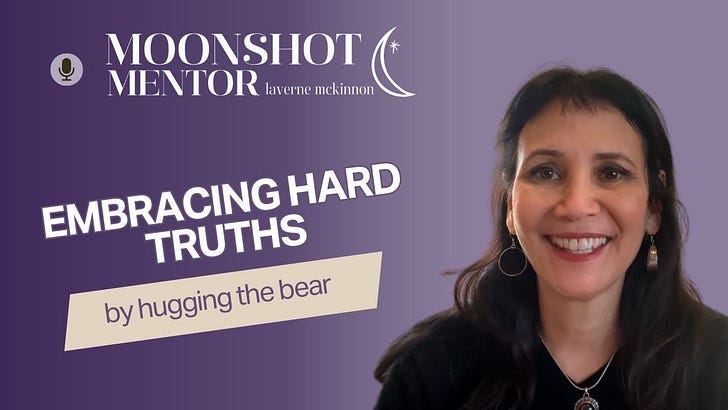Turns out everyday habits in Japan—like carrying your own trash and leaving your shoes at the door—had a lot to teach me about career strategy.
And in case you’re wondering—no, I didn’t go to Japan looking for career insights. I went to have the trip of a lifetime with my older brother and eldest daughter: cherry blossoms, lots of sushi and tonkatsu-don, and castle hopping.
But somewhere between the reverence of the temples and getting hopelessly lost in the Shinjuku train station, I started noticing the cool, everyday rituals in the country where my mother was born.
Like how it’s considered rude to talk on your phone in public.
Like how many shops don’t even open until mid-morning.
Today, I’m sharing five customs that made me stop and think—and what they stirred up about work, boundaries, and what real career fulfillment might look like.
1. You are responsible for your garbage.
There are no public trash cans in Japan. You carry your trash home—because it’s yours.
It made me wonder: what would it look like to carry our own emotional “trash” at work?
One of my clients—we’ll call her Jane—expected her boss to act like the kind of dad she’d always wanted. Someone who would remember her birthday, attend and liberally praise her improv show, and offer constant positive feedback.
But that wasn’t his role. His job was to give direction, clarify expectations, and support her professional growth.
Once Jane stopped outsourcing emotional validation to her boss, everything shifted. She felt more satisfied at work—not because her boss changed, but because she stopped expecting him to fill a role he never signed up for.
Careers can absolutely be meaningful. But when we expect our jobs to meet all our emotional needs, disappointment takes the driver’s seat—and it starts to shape how we show up.
2. Take your shoes off.
In Japan, you remove your shoes before entering a home so you don’t bring dirt and grime into your (sacred) living space. It’s respectful—and it marks a clear boundary and transition. You’re crossing a threshold.
We don’t always realize how much we need transitions. We rush from one thing to the next and then wonder why we feel wired, foggy, or drained.
Creating a simple transition—between meetings, tasks, or the start and end of your workday—can be a powerful mental reset. It helps you shift gears, stay focused, and make space for actual rest even if it’s just for a few minutes..
I start my workday by lighting a candle. When I’m done for the day, I blow it out and take a half-hour walk. Since coming back from Japan, I’ve also been stepping outside for a breath of fresh air between meetings. Just a minute or two. It helps. I think more clearly, and I feel more grounded.
A ritual to mark transition doesn’t have to be fancy. It just needs to signal: this moment matters.
3. Always greet and say goodbye.
Everywhere I went—restaurants, shops, exhibitions—I was greeted when I arrived and thanked when I left.
It’s a simple gesture, but it stuck with me. There’s something powerful about being acknowledged.
Back in the U.S., I once worked at a place where the boss never said hello. No good mornings. No acknowledgments. Just critiques. The vibe? People shrank. Hid in their offices. Avoided being seen.
Acknowledging someone—especially by name—builds trust, invites connection and costs nothing. It signals: you matter. Over time, it builds rapport and generates so much good will.
4. Keep your fridge small.
Japanese kitchens often have compact fridges. Just enough for what’s needed. Nothing extra.
It made me think about how much we try to “stock up” in our careers. Networking events. Certifications. Courses. Podcasts. Panels. Committees.
Always one more thing, just in case.
Underneath it? That demanding belief: If I do more, I’ll be safer. If I have more, I’ll be more successful.
But does it really work that way? Sometimes, sure. But often it just adds clutter.
What if we simplified instead—focused on what’s needed right now. What if we trusted ourselves to meet the moment, rather than prepare for every possible one?
Sometimes stocking up can be its own kind of avoidance.
5. Where the Day Begins (and Who It Belongs To)
Most shops in Japan don’t open until 10 or 11 a.m. People eat breakfast at home. The mornings feel… spacious. Like there’s no pressure to prove anything right away.
Back home in Los Angeles, it’s easy for me to roll out of bed and straight into someone else’s agenda—email, calendar, notifications. From the jump, the day belongs to everything but me.
On my best days, I follow a different rhythm: wake early, strength train, meditate, shower, journal, eat. Those first two hours aren’t just a routine—they’re a claiming.
It’s not tactical—it’s spiritual. A way to remind myself: I’m in the driver’s seat. Not my inbox. Not my calendar. Me.
Bottom Line
I didn’t expect to come back from Japan thinking differently about work. But these small cultural details—the lack of trash cans, the morning rhythms, the ritual of taking off your shoes—each hold wisdom.
They reminded me that career strategy isn’t always about striving harder or doing more. Sometimes, it’s about noticing what’s already there. Creating space. Setting boundaries. Being more intentional with how we move through our days—and who we let them belong to.
Journal Prompts
Listen to this episode with a 7-day free trial
Subscribe to Moonshot Mentor with Laverne McKinnon to listen to this post and get 7 days of free access to the full post archives.


















